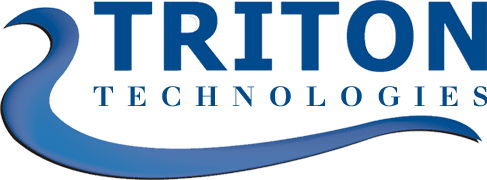In an increasingly interconnected world, where cars are becoming as much computers as they are transportation devices, the need for robust cybersecurity measures in the automotive industry has never been more critical. Modern vehicles are equipped with advanced technologies, from infotainment systems to autonomous driving capabilities, all of which rely heavily on interconnected networks and software. This integration brings unprecedented convenience and efficiency but also opens up new avenues for cyber threats.
Recent events, such as the cyberattacks on software provider CDK Global, serve as stark reminders of the vulnerabilities inherent in automotive technology. CDK Global, a provider of dealer management software used widely across North America, experienced disruptions due to cyber incidents that potentially compromised sensitive customer data. These incidents not only impacted operational efficiency for thousands of car dealerships but also raised concerns about data security and customer privacy in the automotive sector.
As vehicles become more connected through technologies like telematics and vehicle-to-everything (V2X) communication, the attack surface for cyber threats expands. This connectivity offers immense potential for enhancing driver safety, optimizing traffic flow, and improving vehicle efficiency. However, it also increases the risk of unauthorized access and cyberattacks that could manipulate vehicle functions or steal personal information.
Understanding these risks is crucial for stakeholders across the automotive industry, from manufacturers and suppliers to dealerships and service providers. Implementing comprehensive cybersecurity measures is essential to protect vehicles, secure data transmission, and uphold customer trust in an era where digital resilience is essential.
Explore our Managed Service Offerings
Worcester’s Top Managed Service Provider
What is Cybersecurity in Automotive?
Cybersecurity in the automotive sector involves protecting vehicles and associated systems from cyber threats. These threats can range from data breaches that compromise personal information to attacks that could potentially disrupt vehicle operations.
The recent incidents involving CDK Global underscore the real-world implications of cybersecurity lapses in automotive technology. CDK Global, which provides dealer management software used by thousands of car dealerships across North America, suffered cyberattacks that disrupted operations and potentially exposed sensitive customer data.
Cybersecurity Standards for the Automotive Industry
As vehicles become more connected and autonomous features become standard, cybersecurity standards are crucial for mitigating risks. Standards such as ISO/SAE 21434 provide guidelines for securing vehicle components against cyber threats throughout their lifecycle, from design to decommissioning.
For instance, ensuring that software and firmware in vehicles are regularly updated with security patches can help prevent vulnerabilities from being exploited. Additionally, implementing secure communication protocols between vehicle components and external systems can safeguard against unauthorized access.
Discover our IT Solutions for Your Industry
Worcester’s Top Managed Service Provider
Best Practices for Automotive Cybersecurity
Cybersecurity in the automotive industry demands a proactive approach to safeguard vehicles, data, and consumer trust. Implementing robust best practices is essential to mitigate evolving cyber threats effectively.
Regular Security Assessments
Regular cybersecurity assessments are foundational in identifying and addressing vulnerabilities within vehicle systems and software. These assessments involve comprehensive audits and penetration testing to detect weaknesses that could potentially be exploited by cyber attackers. By conducting assessments regularly, automotive companies can stay ahead of emerging threats and ensure that their security measures evolve alongside technological advancements.
Data Encryption
Data encryption is paramount for protecting sensitive information stored within vehicles and transmitted across networks. Encrypting data both at rest and in transit ensures that even if intercepted, unauthorized parties cannot decipher the information. Strong encryption protocols adhere to industry standards and regulatory requirements, providing a robust barrier against data breaches and unauthorized access attempts.
User Authentication
Implementing strong user authentication mechanisms, such as multi-factor authentication (MFA), adds an additional layer of security to vehicle systems. MFA requires users to provide multiple forms of verification before accessing sensitive data or controlling vehicle functions. This significantly reduces the risk of unauthorized access, even in the event of compromised credentials or phishing attempts targeting automotive personnel.
Secure Over-the-Air (OTA) Updates
Secure OTA update mechanisms are critical for delivering software updates safely and securely to vehicles. OTA updates allow automotive manufacturers to patch vulnerabilities, introduce new features, and improve performance without requiring vehicles to be physically serviced. Implementing secure OTA protocols ensures that updates are authenticated, encrypted, and verified to maintain the integrity of vehicle software and protect against malicious tampering.
Collaboration and Information Sharing
Encouraging collaboration among industry stakeholders and sharing information about emerging threats fosters a collective defense approach against cyber threats in the automotive ecosystem. Collaborative efforts enable the industry to pool resources, share best practices, and develop standardized cybersecurity frameworks that enhance overall resilience. By establishing robust communication channels and partnerships, automotive companies can proactively address cybersecurity challenges and respond swiftly to mitigate potential risks.
Incorporating these best practices into cybersecurity strategies empowers automotive stakeholders to strengthen defenses, protect critical assets, and uphold consumer confidence in an increasingly connected automotive landscape. By prioritizing cybersecurity, the industry can navigate technological advancements safely and ensure that vehicles remain secure, reliable, and resilient against cyber threats.
Discover Our Compliance Management Solutions
Worcester’s Leading Provider of Compliance Services
How Triton Technologies Can Help
Triton Technologies specializes in providing comprehensive IT solutions tailored to the needs of various industries, including automotive. Our expertise extends to cybersecurity, where we focus on implementing robust measures to protect critical systems and data integrity.
Customized Security Solutions
We understand the unique challenges faced by automotive businesses in securing their operations. Triton Technologies offers customized cybersecurity solutions that align with industry standards and regulatory requirements.
Continuous Monitoring and Threat Detection
Our proactive approach includes continuous monitoring of networks and systems to detect and respond to potential threats swiftly. Through advanced threat detection technologies, we help automotive companies mitigate risks effectively.
Compliance and Standards Adherence
Triton Technologies ensures that automotive clients comply with cybersecurity standards such as ISO/SAE 21434. We assist in implementing necessary controls and procedures to maintain regulatory compliance and enhance security posture.
Educational Workshops and Training
We believe in empowering automotive professionals with knowledge about cybersecurity best practices. Triton Technologies conducts educational workshops and training sessions to raise awareness and build a culture of security within organizations.
24/7 Support and Incident Response
In the event of a cybersecurity incident, Triton Technologies provides 24/7 support and incident response services. Our rapid response team works diligently to minimize the impact of breaches and restore normal operations swiftly.
The Impact of Cyberattacks on Automotive Industry Stakeholders
The repercussions of cyberattacks in the automotive industry extend beyond financial losses. They can disrupt vehicle operations, compromise customer data, and damage brand reputation. For example, the lawsuits against CDK Global following the cyber incidents highlight the legal and financial consequences faced by businesses and individuals affected by such breaches.
Automotive dealerships rely heavily on management software like CDK’s to streamline operations, manage inventory, and handle customer data securely. When these systems are compromised, as in the case of CDK, it not only affects dealership operations but also exposes customers to potential identity theft and financial harm.
As the automotive industry continues to innovate with connected and autonomous vehicles, the challenge of cybersecurity will only grow. The push towards vehicle-to-everything (V2X) communication, where vehicles interact with each other and with infrastructure, introduces new attack surfaces that need to be secured.
However, with these challenges come opportunities for innovation. Companies investing in cybersecurity research and development can pioneer new technologies and solutions that enhance the security of connected vehicles. From advanced intrusion detection systems to machine learning algorithms that detect anomalous behavior, the future of automotive cybersecurity is promising.
Cybersecurity in the automotive industry is not just about protecting vehicles; it’s about safeguarding data, privacy, and trust. The recent cyberattacks on CDK Global serve as a stark reminder of the vulnerabilities that exist and the importance of implementing robust cybersecurity measures throughout the automotive ecosystem.
By adhering to cybersecurity standards, adopting best practices, and fostering collaboration, stakeholders in the automotive industry can mitigate risks and build resilience against cyber threats. As technology continues to evolve, so too must our approach to cybersecurity, ensuring that vehicles remain safe, secure, and reliable in an increasingly connected world.
As consumers and industry professionals alike, understanding the significance of cybersecurity in automotive is key to shaping a safer and more resilient future for mobility. Let’s drive forward with innovation, while keeping cybersecurity at the forefront of our minds.
For automotive businesses looking to enhance their cybersecurity posture, partnering with Triton Technologies can provide the expertise and solutions needed to navigate the complexities of digital security. Contact us today to learn more about how we can safeguard your operations and data integrity in an evolving threat landscape.



